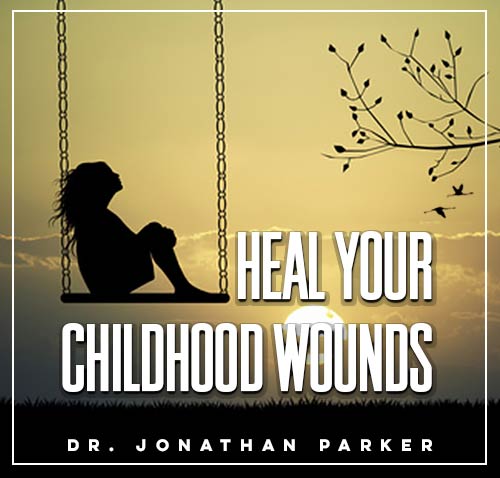Overcome Childhood Fear: Find Inner Courage

Looking for more amazing products? Check out our online store and explore our collection here! Happy shopping!
Before diving in, please note: This post is for informational purposes only. If you’d like to know more about how we approach topics, feel free to check out our friendly Disclaimer Page.
Hey there, amazing readers! 
We’re committed to delivering quality posts, and your support (even just sticking around despite the ads) means everything to us. So, bear with us, and thanks for helping us keep the good vibes rolling. Now, on to the fun stuff!
TRANSLATE BUTTON AT THE END OF THE ARTICLE
A Quick Overview
Childhood fears are a common part of growing up, but they can have a significant impact on a child’s emotional well-being if not properly addressed.
Understanding these fears, recognizing inner courage, and building resilience are crucial steps in helping children overcome their fears and develop a sense of empowerment.
Coping strategies, seeking professional help when needed, and encouraging positive self-talk can all play a role in helping children face their fears head-on.
By gradually exposing themselves to their fears, developing a support system, and celebrating small victories, children can learn to embrace growth and progress as they navigate through their fears.
Understanding Childhood Fear
Childhood fear is a natural response to perceived threats or dangers that children may encounter.
These fears can stem from a variety of sources, including traumatic experiences, exposure to frightening stimuli, or even genetic predispositions.
Children’s brains are still developing, making them more susceptible to irrational fears and anxieties.
It’s important for parents and caregivers to understand that childhood fear is a normal part of development and that it can be managed with the right support and guidance.
Common Childhood Fears
Some common childhood fears include fear of the dark, fear of monsters, fear of being alone, fear of strangers, fear of animals, fear of failure, and fear of criticism.
These fears can vary in intensity and may come and go at different stages of a child’s life.
While some fears may be short-lived and harmless, others can become more persistent and debilitating if not addressed early on.
It’s essential for parents and caregivers to be aware of their child’s fears and provide them with the necessary tools and resources to overcome them.
Impact of Childhood Fear
Childhood fear can have a profound impact on a child’s emotional well-being, leading to feelings of anxiety, insecurity, and low self-esteem.
Persistent fears can interfere with a child’s daily activities, social interactions, and academic performance.
If left untreated, childhood fear can escalate into more serious mental health issues later in life.
It’s crucial for parents and caregivers to take childhood fears seriously and address them proactively to prevent long-term negative consequences.
Recognizing Inner Courage
Inner courage is the strength and resilience that lies within each child, enabling them to face their fears and challenges head-on.
Recognizing and nurturing this inner courage is essential in helping children overcome their fears and develop a sense of empowerment.
By acknowledging their fears, children can begin to build the confidence and self-belief needed to confront their anxieties in a healthy and constructive manner.
Building Resilience
Resilience is the ability to bounce back from adversity and overcome obstacles with grace and determination.
Building resilience in children involves teaching them coping skills, problem-solving strategies, and positive thinking patterns.
By fostering a resilient mindset, children can learn to adapt to change, manage stress, and navigate through difficult situations with confidence and optimism.
Resilience is a valuable asset that can help children overcome their fears and thrive in the face of adversity.
Coping Strategies
Teaching children effective coping strategies is essential in helping them manage their fears and anxieties.
Some common coping strategies include deep breathing exercises, progressive muscle relaxation, visualization techniques, and mindfulness practices.
Encouraging children to engage in physical activities, creative outlets, and hobbies can also help distract them from their fears and build a sense of empowerment.
By equipping children with a diverse toolkit of coping strategies, parents and caregivers can empower them to confront their fears in a healthy and productive way.
Seeking Professional Help
In some cases, childhood fears may be too overwhelming or persistent for children to overcome on their own.
Seeking professional help from a therapist, counselor, or mental health professional can provide children with the necessary support and guidance to address their fears effectively.
Therapy sessions can help children explore the root causes of their fears, develop coping strategies, and learn healthy ways to manage their anxieties.
Discover "SUPERFOODS: The Key to Health and Balance
"
Professional intervention is crucial in helping children overcome deep-seated fears and build a strong foundation for emotional well-being.
Encouraging Positive Self-talk
Positive self-talk is a powerful tool that can help children reframe negative thoughts and beliefs into more positive and empowering ones.
Encouraging children to practice positive affirmations, self-compassion, and self-validation can boost their self-esteem and confidence in facing their fears.
By replacing self-doubt with self-encouragement, children can cultivate a more resilient and optimistic mindset that empowers them to overcome their fears and challenges with courage and determination.
Facing Fear Gradually
Facing fears gradually is a gradual exposure technique that involves gradually exposing children to their fears in a controlled and safe environment.
By starting with small, manageable steps and gradually increasing the level of exposure over time, children can learn to confront their fears in a gradual and systematic manner.
This approach helps desensitize children to their fears, build confidence, and develop a sense of mastery over their anxieties.
Facing fear gradually is an effective strategy in helping children overcome their fears and build resilience in the process.
Developing a Support System
Building a support system is crucial in helping children overcome their fears and develop a sense of security and belonging.
Encouraging open communication, active listening, and emotional support within the family and social circle can provide children with the reassurance and validation they need to navigate through their fears.
Connecting children with supportive peers, mentors, and role models can also help them feel understood and accepted as they face their fears.
Developing a strong support system is essential in empowering children to overcome their fears and thrive in challenging situations.
Celebrating Small Victories
Celebrating small victories is an important part of the fear-facing process, as it reinforces children’s sense of accomplishment and progress.
By acknowledging and celebrating each step forward, children can build confidence, motivation, and resilience in overcoming their fears.
Whether it’s making a new friend, speaking up in class, or trying a new activity, every small victory counts towards building a child’s sense of empowerment and self-belief.
By celebrating small victories, parents and caregivers can motivate and inspire children to continue facing their fears with courage and determination.
Embracing Growth and Progress
Embracing growth and progress is a mindset that focuses on the journey of overcoming fears rather than the end result.
By emphasizing the process of growth, learning, and self-discovery, children can develop a sense of resilience, adaptability, and self-awareness in facing their fears.
Embracing growth and progress involves embracing challenges, learning from setbacks, and celebrating successes along the way.
By fostering a growth-oriented mindset, children can cultivate a sense of empowerment and optimism that enables them to overcome their fears and thrive in the face of adversity.
Conclusion
Childhood fears are a natural part of growing up, but they can have a significant impact on a child’s emotional well-being if not properly addressed.
Understanding childhood fear, recognizing inner courage, and building resilience are key steps in helping children overcome their fears and develop a sense of empowerment.
By implementing coping strategies, seeking professional help when needed, and encouraging positive self-talk, children can learn to face their fears with courage and determination.
By gradually exposing themselves to their fears, developing a support system, and celebrating small victories, children can embrace growth and progress as they navigate through their fears.
With the right support and guidance, children can overcome their fears and emerge stronger, more resilient, and more confident in themselves.

The Enlightenment Journey is a remarkable collection of writings authored by a distinguished group of experts in the fields of spirituality, new age, and esoteric knowledge.
This anthology features a diverse assembly of well-experienced authors who bring their profound insights and credible perspectives to the forefront.
Each contributor possesses a wealth of knowledge and wisdom, making them authorities in their respective domains.
Together, they offer readers a transformative journey into the realms of spiritual growth, self-discovery, and esoteric enlightenment.
The Enlightenment Journey is a testament to the collective expertise of these luminaries, providing readers with a rich tapestry of ideas and information to illuminate their spiritual path.
Our Diverse Expertise
While our primary focus is on spirituality and esotericism, we are equally passionate about exploring a wide range of other topics and niches 

To ensure we provide the most accurate and valuable insights, we collaborate with trusted experts in their respective domains 
Our blog originally focused on spirituality and metaphysics, but we’ve since expanded to cover a wide range of niches. Don’t worry—we continue to publish a lot of articles on spirituality! Frequently visit our blog to explore our diverse content and stay tuned for more insightful reads.
Hey there, amazing reader! 
Check out our store here and take a peek at some of our featured products below! Thanks for being awesome!
















